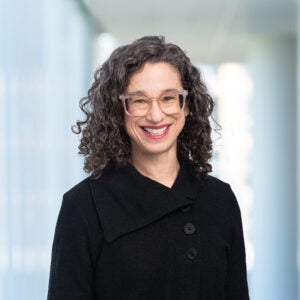
Welcome to the Knight Center’s new course, “Audio intensive storytelling for journalists,” organized by the Knight Center for Journalism in the Americas. During this four-week online course, which will be held from July 15 – August 11, 2024, students will deepen their understanding of how to create audio journalism. We’ll explore the different forms of audio journalism and help you hone your audio storytelling skills – from creating a reporting plan that includes audio to performing your story on a microphone.
Regardless of what sort of journalism you do (or aspire to do), journalists are increasingly expected to be audio storytellers. This course will help you solidify the skills you need to tell the story you are covering in an interview, a longform podcast, a radio feature, or a social video. You’ll learn a process for defining your story and creating an audio reporting plan.
Who can enroll?
This course is designed for experienced journalists who are interested in audio storytelling or are finding that they are expected to be proficient at audio storytelling as part of their job or want to further develop their audio storytelling skills. Students, working professionals, educators, and anyone interested in the intersection of journalism and audio storytelling are welcome to enroll in this course.
Certificate of Completion
A certificate of completion is included in the course fee for those who met the course requirements. The certificate is awarded by the Knight Center for Journalism in the Americas to attest to participation in the online course.
The course is divided into four weekly modules, each focusing on a unique topic presented through videos, presentations, readings, and discussion forums.
Module 1 – Set your audio story up for success
We’ll explore what makes a good audio story and how you set your audio story up for success.
This module will cover:
Module 2 – Adapting core journalism skills for audio
Audio journalism is journalism. This week we will look at what stays the same when you are doing audio journalism and how some skills you may already have shift slightly when you are creating audio journalism.
This module will cover:
Module 3 – Core audio skills you need to know
This week we will tackle the two elements of audio storytelling that are REALLY different – field recording and voice performance.
This module will cover:
Module 4 – Putting it together: Three forms of audio storytelling
Over the last three weeks you’ve learned the fundamental skills of audio storytelling. In this final week we will explore the storytelling formats you can use.
This module will cover:

Tamar Charney’s consulting company, Charney LLC, works with media outlets, industry leadership organizations, and national networks to ensure that communities have the journalism they need. Services include custom audio-storytelling workshops (with a specialization in training print journalists to work with audio), digital strategy and audience development training, one on one coaching, editorial guidance, facilitation, and strategic recommendations to leadership.
Tamar’s work at the local, regional, and national level as a station-based programming and content leader, key national player in developing content for emerging platforms, and podcast creator gives her a unique viewpoint on how media, particularly public media can harness its power in the digital space.
At Michigan Radio, she was a newscaster, reporter, and editor before becoming Program Director. At NPR, she pioneered content on new platforms such as apps and smart speakers including NPR’s state of the art personalized listening app NPR One. Tamar was an executive creator of NPR’s Coronavirus Daily which was the network’s fastest growing podcast to date. During her years at NPR she led NPR One, the newsroom’s digital effort, NPR’s Collaborative Journalism Network, and its cinematically produced history podcast Throughline in the work honored with a Peabody Award.
Tamar holds a master’s degree in telecommunications specializing in social effects of new media from Michigan State University and a BA from University of Michigan. She was the lead author on the chapter Uses and Gratifications of the Internet in Lin, C & Atkin, D.(Eds.) Communication Technology and Society (pp. 379-408.)
Before the pandemic, she gave talks and presentations at industry conferences worldwide about the confluence of technology and journalism.

Knight Center for Journalism in the Americas
300 West Dean Keeton
Room 3.212
Austin, TX, 78712
Telefone: 512-471-1391
Email: journalismcourses@austin.utexas.edu